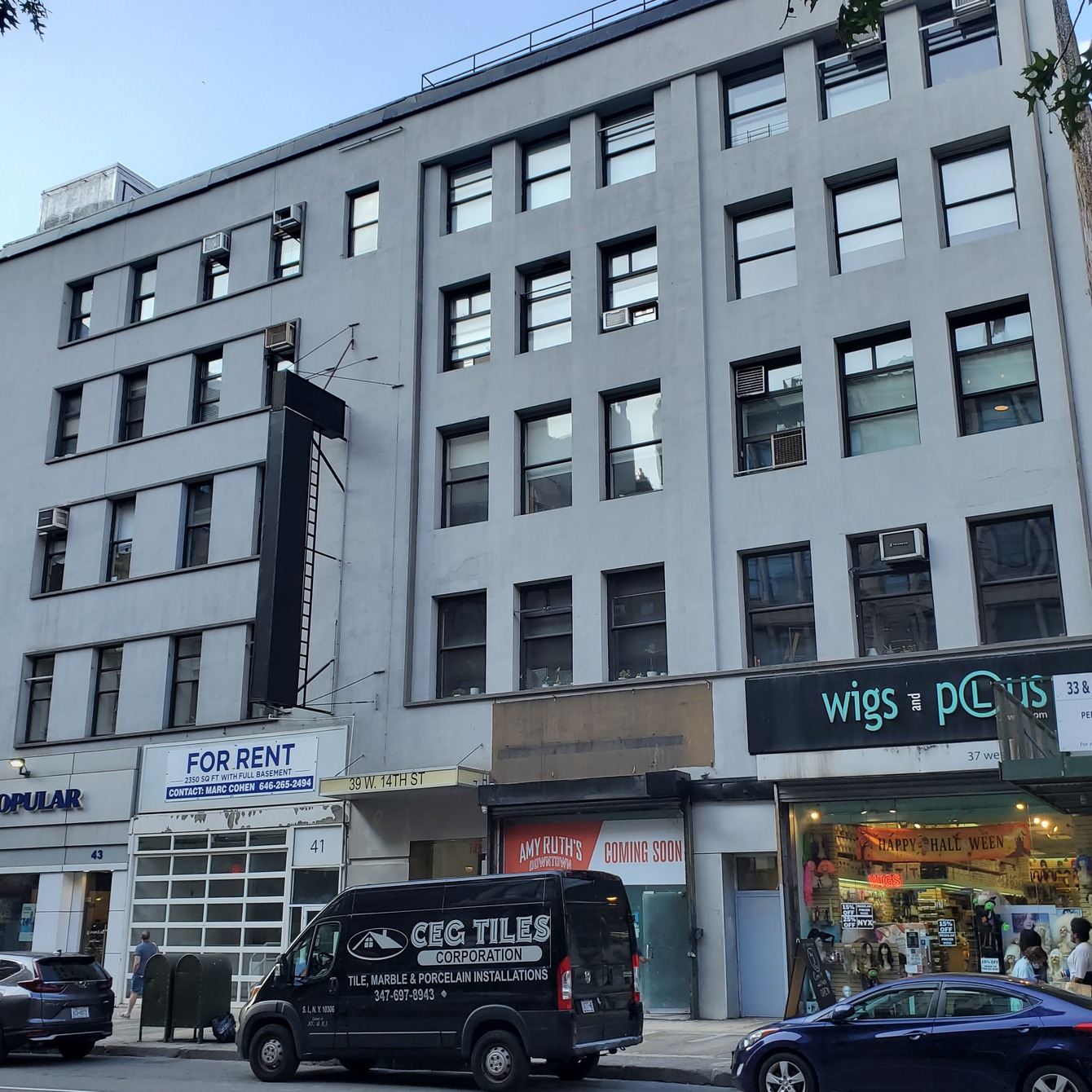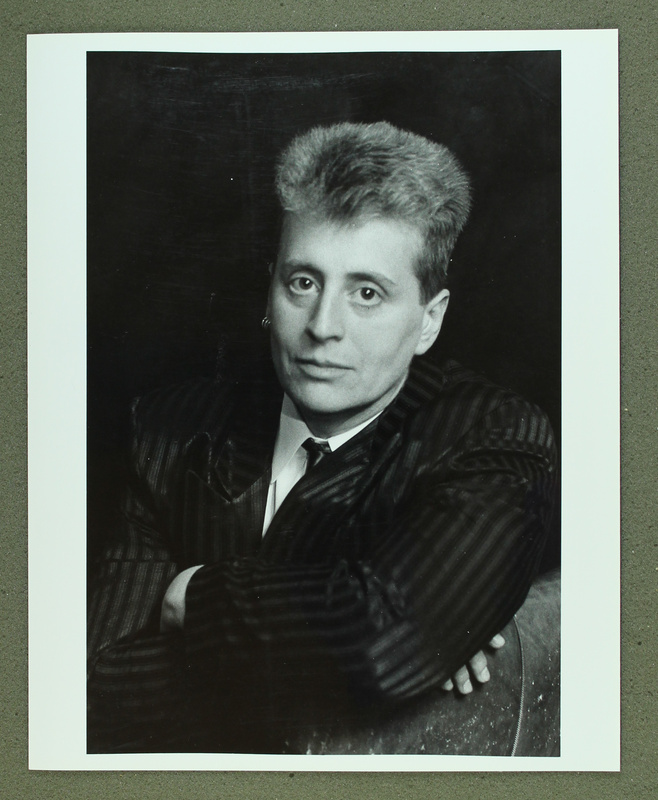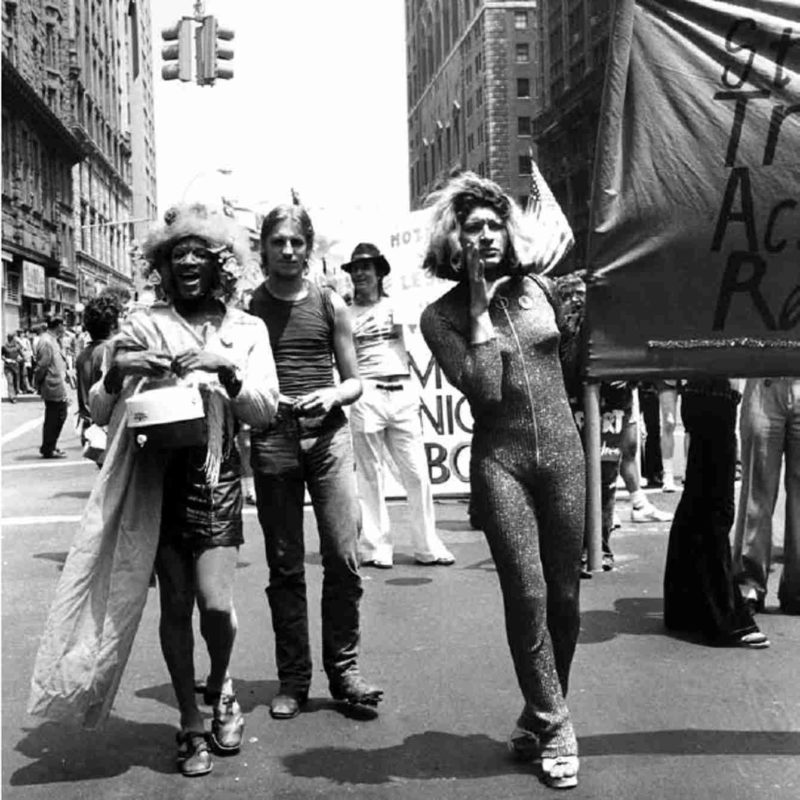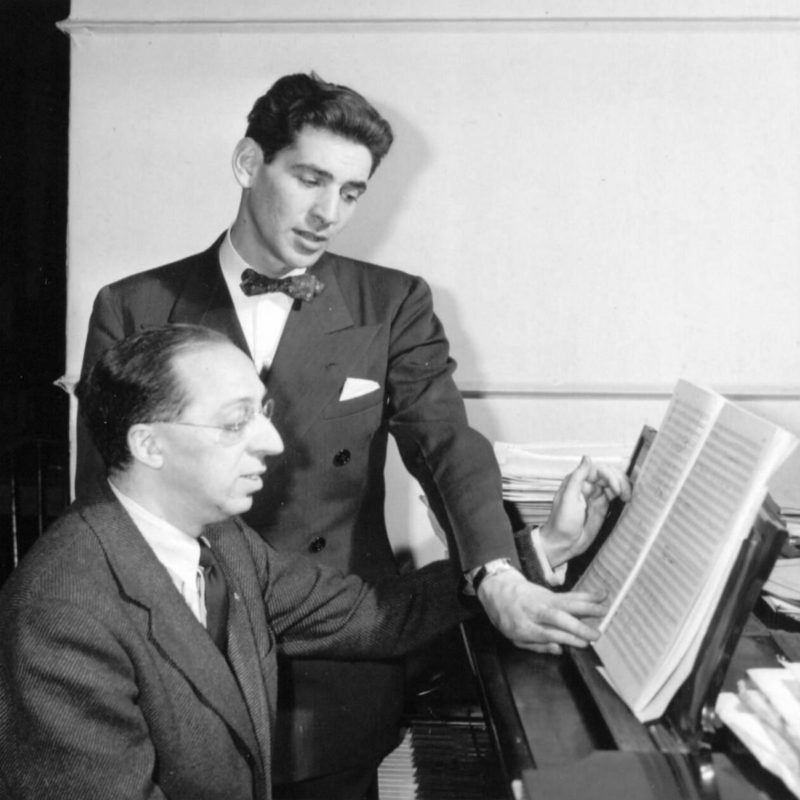
Leslie Feinberg Lecture & Reading at the International Action Center
overview
On April 16, 1993, the International Action Center hosted a lecture and reading by transgender activist and writer Leslie Feinberg, whose ground-breaking novel Stone Butch Blues was newly published.
This 14th Street building was the headquarters of the center, a non-profit organization founded in 1992 with the goal of working towards the liberation of all peoples living in the U.S. and around the world.
History
Activist and writer Leslie Feinberg (1949-2014), defined herself as “an anti-racist white, working-class, secular Jewish, transgender, lesbian, female, revolutionary communist.” (According to Feinberg’s longtime partner and spouse, Minnie Bruce Pratt: “Over the years, comrades and friends have related to Leslie through a range of pronouns. But Leslie’s preferred pronouns with close friends and family were she/her and ze/hir.”) Feinberg was born to a working-class Jewish family in Kansas City, Missouri, and, shortly after, the Feinbergs relocated to Buffalo, New York. She struggled with her gender nonconformity from a young age and as a result dropped out of school at age 14, working various low-wage jobs to support herself. Feinberg found community in Buffalo’s factories and gay bars, despite the harassment she faced for her masculine gender expression. She joined Workers World Party (WWP) in 1973 through its Buffalo branch. Through her organizing with WWP, Feinberg began to examine the historical roots of transgender oppression. Building on WWP member Bob McCubbin’s 1976 pamphlet Roots of Gay and Lesbian Oppression, Feinberg developed the first Marxist analysis of transgender oppression, for which she became known. By 1974, Feinberg was living in New York City, “passing” as a man for reasons of safety, and was employed as a writer for the WWP newspaper, of which she eventually became its managing editor.
These early experiences shaped Feinberg’s most celebrated book, Stone Butch Blues, one of the first published works of transgender fiction. Published in 1993 by the Ithaca, New York-based feminist and lesbian press Firebrand Books, the novel tells the story of Jess Goldberg, a so-called “he-she” from a working-class background who, like Feinberg, comes of age in Buffalo. Despite similarities to Feinberg’s own biography, she insisted the novel was a “work of fiction, written by an author who has lived the non-fiction.” The majority of Stone Butch Blues was written in Feinberg’s apartment building on Summit Avenue in Jersey City, New Jersey. After beginning a romance with poet Minnie Bruce Pratt in July/August of 1992, she revised the manuscript at Pratt’s Washington, D.C. residence.
Feinberg became a national organizer for the International Action Center (IAC), a non-profit affiliate organization of WWP, shortly after its founding in 1992. The IAC’s headquarters were then located on the second floor of 39 West 14th Street in Manhattan, two blocks west of Union Square. As a staunchly anti-capitalist and anti-imperialist organization, the IAC was committed to working towards the liberation of all peoples living in the U.S. and around the world (including LGBT people) by building a progressive movement for social justice and change.
The IAC’s philosophy and goals aligned with Feinberg’s years of writing and organizing for WWP, an independent Marxist-Leninist party committed to building a movement to overthrow imperialism and create a socialist future. On Friday, April 16, 1993, the IAC brought Feinberg to lecture on the history of transgender oppression and read from her ground-breaking, newly-released novel Stone Butch Blues. The event was sponsored by the Movement for a Peoples Assembly, a political organization with aims similar to the IAC and WWP.
The April lecture at IAC was one of the earliest promotional events for the novel and offered those in attendance a window into Feinberg’s future writings on transgender history. The event, held in room 206, was titled “In Our Own Voices: Transgender Oppression: A visual history of when and why it arose.” It featured a slideshow by Feinberg, called “Transgendered Women: From Joan of Arc to Billy Tipton,” on the history of individuals who today would be considered trans men or trans masculine. Feinberg also read work from Stone Butch Blues and Joan Nestle’s 1992 anthology The Persistent Desire: A Butch-Femme Reader, which includes the first chapter of Stone Butch Blues as the short story “Letter to a Fifties Femme From a Stone Butch.” Buttons, made by the Movement for a Peoples Assembly, that read “I’ve got the Stone Butch Blues: Transgender Liberation Now!” and “I Support Transgender Rights” were distributed, and 17 copies of the novel were sold. Feinberg’s slideshow formed the basis of her 1996 book Transgender Warriors, a personal and historical study of gender nonconformity published by Beacon Press.
Stone Butch Blues went on to win the 1994 Lambda Literary Award and the Stonewall Book Award-Barbara Gittings Literature Award from the American Library Association, and was translated into numerous languages. By 1996, 30,000 copies had been sold, a significant number for a novel published by a small feminist press. Feinberg became internationally known for her theoretical work on transgender oppression, as well as, in the words of Pratt, “her activism for workers’ rights; lesbian, gay, bi, trans and queer liberation; the rights of women, prisoners and people with disabilities; and against racism and imperialism.”
Feinberg died at age 65 from complications related to late-stage Lyme disease in the home she shared with Pratt in Syracuse, New York. In June 2023, the New York Times named Stone Butch Blues one of the most influential works of post-World War II queer literature.
Entry by Jeffry Iovannone, project consultant (August 2024).
NOTE: Names above in bold indicate LGBT people.
Building Information
- Architect or Builder: Unknown
- Year Built: by 1953
Sources
“About the IAC,” International Action Center, accessed March 16, 2024, bit.ly/3IOkGH4.
Leslie Feinberg, Stone Butch Blues, 1st edition (Ithaca: Firebrand Books, 1993).
Leslie Feinberg, Stone Butch Blues, 20th anniversary edition (self-published by author, 2014).
Leslie Feinberg, Transgender Liberation: A Movement Whose Time Has Come (New York: World View Forum, 1992).
Leslie Feinberg, Transgender Warriors (Boston: Beacon Press, 1996).
Firebrand Books records, #7670. Division of Rare and Manuscript Collections, Cornell University Library.
Kurt Soller, et al., “The 25 Most Influential Works of Postwar Queer Literature,” New York Times, June 22, 2023, updated June 29, 2023, accessed March 16, 2024, bit.ly/3IPubFR.
Minnie Bruce Pratt, email correspondence with Jeff Iovannone, March 22, 2023.
Minnie Bruce Pratt, “Transgender Pioneer and Stone Butch Blues Author Leslie Feinberg Has Died,” The Advocate, November 17, 2014, accessed March 16, 2024, bit.ly/3VAr3Fx.
Minnie Bruce Pratt, “Transgender warrior Leslie Feinberg united all struggles for liberation,” Workers World, March 31, 2015, accessed March 16, 2024, bit.ly/3Twzi2X.
Do you have more information about this site?
This project is enriched by your participation! Do you have your own images of this site? Or a story to share? Would you like to suggest a different historic site?





